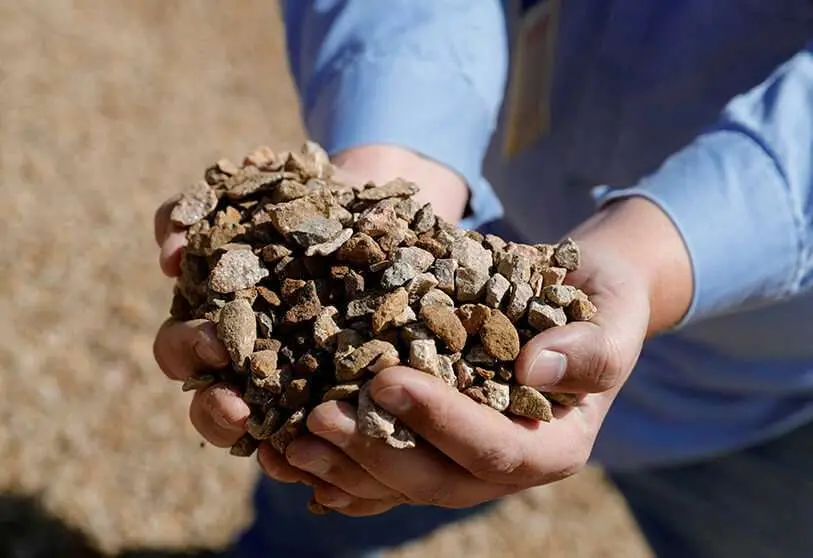Marruecos cierra un acuerdo de cooperación con Rainbow, líder en el mercado de las tierras raras

British giant Rainbow Rare Earths has reached a tripartite agreement with Moroccan state-owned phosphate and fertiliser company OCP Group and the Mohamed VI Polytechnic University (UM6P), a private, non-profit research centre, to develop an optimal pathway for extracting and processing rare earths. The parties also intend to "continue research" to improve techniques for obtaining this material "from phosphogypsum".
The mining company, which specialises in the extraction of these rare elements that are increasingly used in various industrial sectors, explains in the statement that OCP Group "has accumulated significant intellectual property assets, know-how and experience in the field of phosphogypsum processing" through its collaboration with the research centre, which "offers a synergistic opportunity for joint development".

Phosphogypsum is calcium sulphate hydrate formed as a residue from the production of fertiliser from phosphate rock. It is contaminated by chemical and radioactive materials, but its use in agriculture, aerospace, construction, electric vehicle manufacturing and defence has proven productive. The industrial development of this phosphate in several emerging economies has spurred global interest in obtaining it and, above all, in establishing the necessary safety conditions for its use.
Rainbow, which is listed on the London Stock Exchange, will join forces with OCP and UM6P in this area, drawing on its experience, which has been proven in other parts of the African continent. In South Africa, Rainbow owns the Phalaborwa project, which hosts estimated reserves of over 38 tonnes with a high percentage of rare earths in the phosphogypsum waste. In Burundi, the British company has played a leading role in the mining of the Gakara mines until the government decided to halt mining in an attempt to renegotiate the terms of the contract.

In a statement, Rainbow Rare Earths chief executive George Bennett highlighted the "enormous potential" of phosphogypsum as a source of rare earths and said the company "is focused on securing opportunities for collaboration and knowledge sharing, as well as gaining access to new supplies". "We are delighted to sign this agreement with such innovative partners," Bennett said.
The Rainbow CEO - who is also regional director of Karo Power, a Cyprus-based energy company operating in West Africa for tax purposes - served from 2003 to 2006 as managing director of Shanta Gold, a company registered in the tax haven island of Guernsey that operated gold mines in Tanzania, underlined the need for these materials to achieve "a successful global transition to clean energy".

The scarcity of high-quality rare earth element (REE) deposits has pushed energy companies to seek alternative sources of supply, mostly from the extraction of industrial waste such as phosphogypsum. Despite successive crises, the demand for these materials has been growing exponentially for the past two decades due to their multiple applications.
India is gaining weight, but it is China that dominates the market for rare earths, a group of 17 metals that were once useless but are now crucial to the energy transition. Many countries depend on the Asian giant. This explains the renewed attempts by international suppliers to find new supply routes to reduce this dependence.

Two weeks before the signing of the tripartite agreement between Rainbow and Moroccan institutions, the administrator of the United States Agency for International Development (USAID), Samantha Powell, met with the CEO of OCP Group, Mostafa Terrab, who also serves as president of the International Fertiliser Organisation.
In the conversation, the former US ambassador to the United Nations during the Obama Administration thanked the Fez-based businessman for OCP Group's donation of more than half a million tons of fertiliser at reduced prices to some twenty countries in sub-Saharan Africa, a region particularly hard hit by the consequences of the war in Ukraine. Powell conveyed to Terrab his intention to deepen their humanitarian collaboration.








